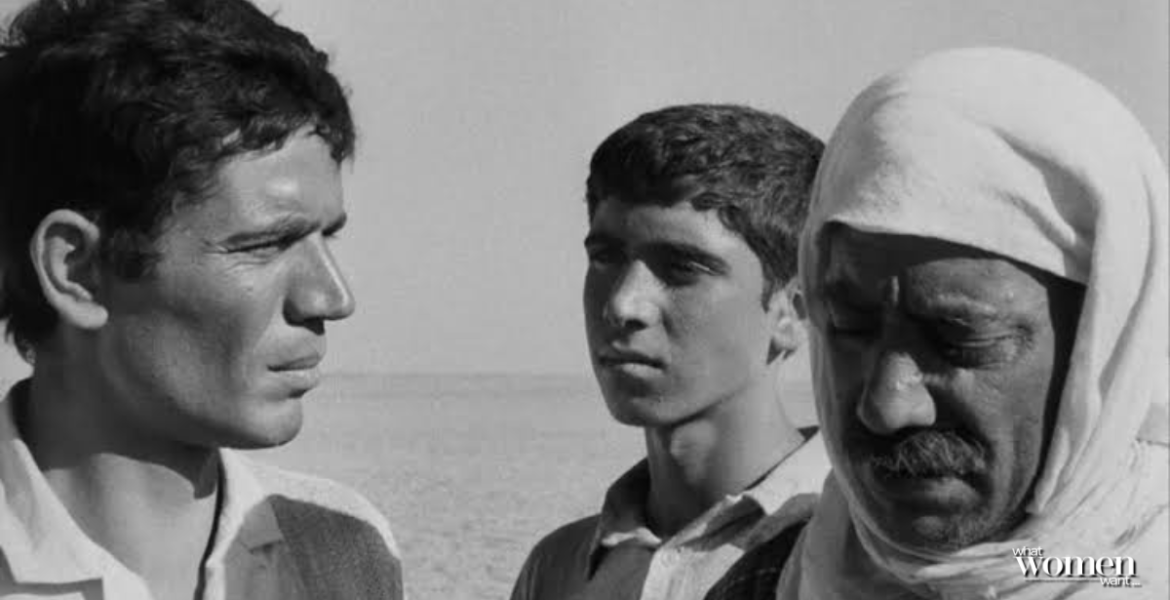Banned for decades, The Dupes (1972) is a Syrian-produced, Egyptian-directed adaptation of Ghassan Kanafani’s Men In The Sun, set in the 1950s and published in 1962, and directed by Tewfik Saleh. We follow three Palestinian refugees from different generations attempt to smuggle themselves into Kuwait where they hope to find work. Abou Keiss, an old farmer longing for the land and its trees. Assad, a young man that deems his freedom no matter the path. And Marwan, a 16-year-old boy that strives for independence in his life.
“My father said a man without a homeland will have no grave, and forbade me to leave.”
Endless sand and dust, whited out by the scorching sun to the point where you can’t see the horizon. We spend the first couple of minutes of the film traveling on foot in the agonizing sun with Abou Keiss. As he eventually lays on the ground, he remembers a distant memory when he was one with the land, its heart beating with him. The first half details each of their backstories that led them down this path. Then, it switches to an unbearably tense second half. It involves transportation through an inhospitable environment via a huge busted old truck.
Characters As Symbols of Guilt
The protagonists represent forms of guilt. Uncertainty and sorrow from being evicted from your homeland is explored as Abou Keiss is haunted by the memories of his past. “I’m not sure if I can make the journey,” he says to his wife in a flashback. Then, they leave through the desert for Iraq. Abou Keiss is consumed with the guilt of staying in a doomed place. He wishes for martyrdom instead of going on. Even the side characters are not free from guilt. “Perhaps someday you will forgive him, but he might not be able to forgive himself,” writes Marwan to his mother about his father leaving their home and family for a better life.
Editing As An Artistic Tool
The movie is told in a non-traditional, non-linear way. It breaks away from the limiting style of continuity editing. The past effortlessly transforms into the present and vice versa. The actions of our characters are never understood without understanding the situations that got them to this moment. Using editing as an artistic expression that reflects the content of the narrative rather than just a methodology to follow with clear and well defined tasks to do. This is perhaps the highest form of editing.
Longing For Home
Among other things, The Dupes is a film about agony. Agony created from the warfare between the need to escape to freedom and the soul aching need to return, and longing for a connection to your roots. It explores the internal conflict faced by many Palestinians following the Nakba, and the yearning for the homeland after forced removal. It is uncomfortable and challenging. For many Palestinians, there was no choice but to leave, as shown in the film; their homes, trees, and livelihoods were stolen from them. You can see the full film for free on YouTube.

